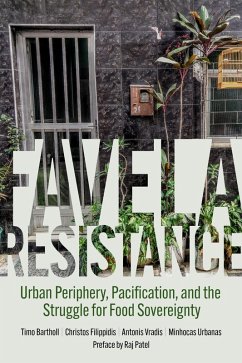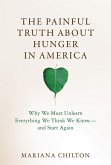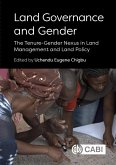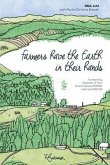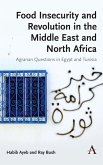Food is at the heart of security, peace, and health. But millions live without access to basic nutrition, and billions live without control or understanding of where their food will come from and how it is produced.
Nowhere is this problem clearer than in the favelas of Rio de Janeiro. Through meticulous research, community engagement and direct action within the Maré region-a cluster of seventeen favela communities in the northern zone of Rio-Antonis Vradis, Timo Bartholl, and Christos Filippidis have created a shocking, inspiring, and revolutionary collection of essays that go beyond the question of food in the Brazilian urban periphery, and highlights critical issues concerning state control, pacification, solidarity, and grassroots organizing.
Favela Resistance is a lens through which we can understand how the state creates marginalized lives in cities throughout the world under the auspices of security and emergency support. The link between food and public security is intertwined with decades-long pacification operations in the favelas of Rio. This fight for food sovereignty shows how local production structures and solidarity networks have radically rethought and reconfigured the relationship between cities and farms; providing a map of how impoverished populations can organize resistance, create health and community, and fight-literally from the ground up-for a better world.
Nowhere is this problem clearer than in the favelas of Rio de Janeiro. Through meticulous research, community engagement and direct action within the Maré region-a cluster of seventeen favela communities in the northern zone of Rio-Antonis Vradis, Timo Bartholl, and Christos Filippidis have created a shocking, inspiring, and revolutionary collection of essays that go beyond the question of food in the Brazilian urban periphery, and highlights critical issues concerning state control, pacification, solidarity, and grassroots organizing.
Favela Resistance is a lens through which we can understand how the state creates marginalized lives in cities throughout the world under the auspices of security and emergency support. The link between food and public security is intertwined with decades-long pacification operations in the favelas of Rio. This fight for food sovereignty shows how local production structures and solidarity networks have radically rethought and reconfigured the relationship between cities and farms; providing a map of how impoverished populations can organize resistance, create health and community, and fight-literally from the ground up-for a better world.
Dieser Download kann aus rechtlichen Gründen nur mit Rechnungsadresse in A, D ausgeliefert werden.

